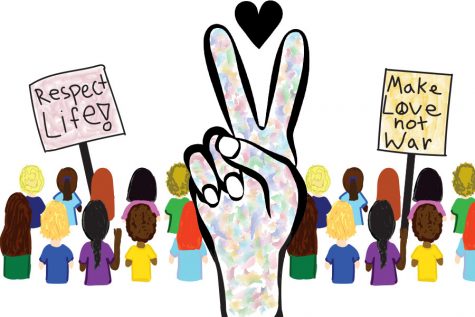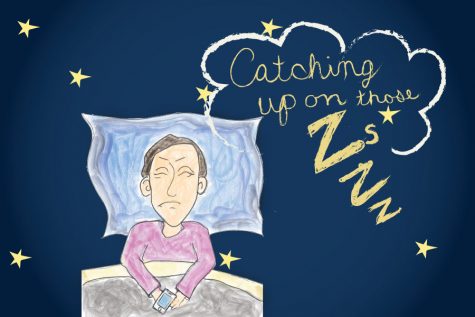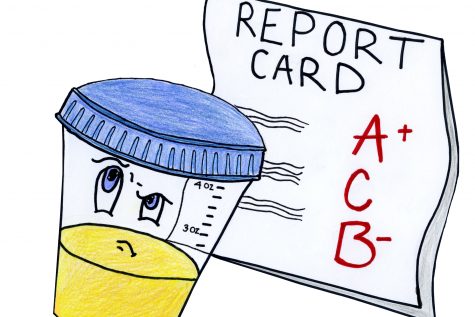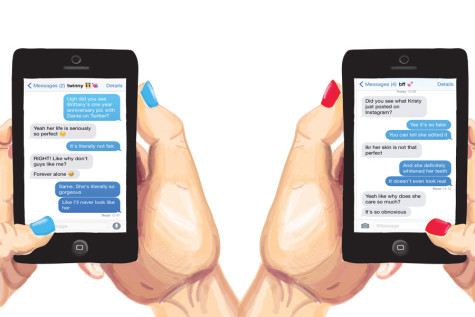The Patriot In-Depth: The Underlying Truth
The Patriot looks into the reasons why students lie, who they lie to, and if they find lying immoral
When is lying acceptable?
Freshman Mary Dowd stands face to face with her parents, wondering if she should lie about who she’s hanging out with that night. She knows that if she tells the truth, her parents might not let her go, but lying may cause even more trouble.
“Lying to your parents isn’t good because they always find out about it,” Dowd said. “I also never lie to my teachers because they find out, too. They have eyes everywhere.”
Although Dowd avoids lying to her parents and teachers, there are other students who lie to people they know. Who do students lie to? When is lying acceptable? Why do students lie? To discover how students feel about lying, the Patriot conducted a survey of JC students on Feb 7. According to the survey, 60.9 percent of students lie to their teachers once a month or more often, and 82.6 percent of students lie to their parents once a month or more often. 38.3 percent of students lie once a day or more often.
Junior Austin Kiss believes that it is never acceptable to lie to anyone. “Lying is intentionally avoiding the truth, and I don’t think it’s ever acceptable to tell a major lie,” Kiss said.
One student that responded anonymously to The Patriot survey said, “If you’re lying only to benefit yourself or get out of trouble, then it’s not acceptable.”
Dowd believes that lying is only acceptable when the truth will hurt someone’s feelings. “I think lying is okay when you need to spare someone’s feelings. Also, small white lies are okay every now and then,” Dowd said. “I tell white lies all the time.”
“White lies aren’t as extreme,” senior Paige Tyler said. “They’re used to protect people so they don’t get hurt.”
According to the article “The Truth about Lying,” by Allison Kornet, found on psychologytoday.com, lies in which people pretend to like something more than they actually do are 10-20 times more common than other kinds of lies.
One student that responded to The Patriot survey described a white lie as, “a lie that doesn’t hurt anyone or anything in the long term. Basically, a white lie is a lie that is beneficial to the situation.”
Another student from the survey from the survey believes that “there is no such thing as a white lie. A lie is a lie, no matter how small or how big.”
Kiss believes lying is acceptable only when necessary. “It’s okay to tell a small lie about something not important. It’s not okay to tell a lie that could have major consequences and really hurt someone,” Kiss said. “I tell small lies only when I have to.”
According to Kornet, people lie at least once or twice a day. Over the course of a week, they lie to about 30 percent of the people they interact with one-on-one. Both men and women lie in approximately a fifth of their social exchanges that last at least ten minutes.
Students lie for different reasons, and Kiss believes that most people lie so they don’t get in trouble. “People lie to protect themselves,” Kiss said
Freshman Caleb Olsen has lied about his grades to avoid getting in trouble by his parents. “I told my dad that I didn’t fail biology, but I actually did. He eventually found out and he was upset with me for lying,” Olsen said.
Tyler agrees with Kiss. “Lying prevents people from getting in trouble and it helps them,” Tyler said.
Dowd believes that people exaggerate the truth to get things they want. “Sometimes people alter their stories to seem worse than they actually are so they’ll get a pity party,” Dowd said.
According to Kornet, women mainly lie to protect someone’s feelings. Men, however, mainly lie about themselves.
According to the survey, 27.5 percent of students lie at least once a week about not completing their homework, 33.3 percent of students lie at least once a week because they broke their parents’ rules, and 27.5 percent of students lie at least once a week to impress someone.
“Overall, it’s just better to tell the truth,” Dowd said.
When have you lied?
“One time I lied about accidentally running over a duck,” freshman Grace Mottley said. “I was driving my family around in a golf cart and there was a duck in front of us. I kept driving because I thought it was going to move and I ended up running over it. When my mom asked what we hit I told her it was a rock.”
Mottley isn’t the only student who has said something other than the truth. “When I was twelve, I got my boating license online and said I was thirteen. Now, my boating license says I’m sixteen instead of fifteen,” freshman Leah Monaghan said.
Many students, along with senior Paige Tyler, have told their parents something that isn’t true. “I mainly lie about who I’m with. Once I slept over my friend’s house and didn’t tell my parents about it,” she said.
“One time I told my mom I was going out to eat with my friends, but instead I drove to Baltimore City,” a junior boy, who wished to remain anonymous, said.
One student who replied to the Patriot survey described a time when he or she lied to their parents: “I once lied about going to see a movie that was rated R, and I pretended that I didn’t know ahead of time. That was a bad decision.”
Sophomore Madison Hooper has lied to her sister before, but she did not expect her to believe it. “Last year my sister was complaining and I convinced her that she was adopted from Alaska. She believed me for about three months until my parents showed her birth certificate to her. She was so mad at me that she didn’t talk to me for two months,” Hooper said.
Like Hooper, Dowd has lied to her siblings. “I don’t lie often, but when I do it’s something small. If my siblings ‘call shotgun,’ I’ll lie and them I already called it first. Sometimes if I’m leaving to go somewhere I’ll tell them we’re leaving at a different time than when we’re actually leaving so they won’t come with me,” Dowd said.
“Lying isn’t good because it can eventually lead to bigger and bad consequences,” Mottley said.
According to the survey of JC students conducted by The Patriot on Feb. 7, 55.2 percent of students think that lying creates bigger problems, and 67.2 percent of students feel guilty after lying.
One student who responded to Patriot survey said, “I pretty much always tell people when I lie because I am terrible at keeping secrets. That doesn’t mean that I don’t lie often, I pull lies all the time. The difference is that I always come clean within a few minutes and the lies are never serious, though. I would never be able to live if I told a major, serious lie.”
“Sometimes I’ll tell a small fib to my parents if they ask me if I completed all of my homework,” a student who responded to the survey said. “But, if you lie, someone will always find out eventually. It’s just better to tell the truth.”
Nicole Arrison is an In-Depth Editor for The Patriot and jcpatriot.com.












